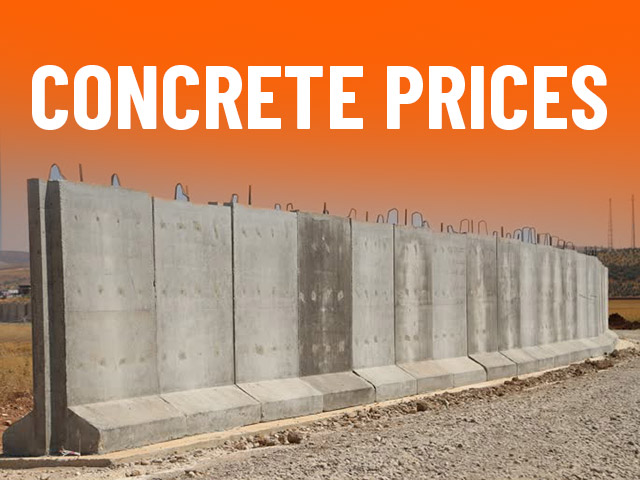
According to the industrial data in the construction sector, the ready-mixed concrete prices vary especially according to the material to be used in production and the process until it is ready for sale. Apart from these factors, average concrete prices may also vary according to the region to be produced or sold.
Concrete prices can be explained roughly by factors that can be expressed under the following headings:
- Classification
- Location and conditions of the ground to be applied
- Form of concrete
- Costs of local production
Concrete Prices
Considering the conditions for determining the budget to be allocated to building constructions, it is important to enter the sector with proper planning. The production of concrete and the supply of ready-mixed concrete for use in the construction sector are only a fraction of the cost.
Prices of Concrete Mixture
It is sold as ready-mixed concrete. Therefore, detailed analysis of the area to be used is very important. However, although concrete prices vary according to the production area and the type of concrete ordered, they can be expressed with an average value based on cubic meters. In general, the average price of one cubic meter of concrete is 250 liras.
Considerations in Concrete Supply
- First of all, different concrete products of various types, sizes and materials will fit into different projects. In addition, mixture may vary depending on color and texture, so it is important to know the surface you want from the beginning. All of these changes will affect the price, so expect to pay more for anything other than a basic product.
- There are strict regulations regarding the density of concrete required for different areas. For example, the foundation of a house where only pedestrian traffic occurs does not require as much concrete as a driveway or garage floor. As a general rule, 25 percent more concrete is required for areas that must withstand heavy vehicle use.
- Concrete is sold by cubic meters, so working on it is important before contacting suppliers. A standard rectangle is easy to calculate, but if the area covered is more complex, you need to divide it into various shapes and calculate volumes appropriately. Fortunately, there are numerous online calculators to help with this. It is a good idea to use several of the same amounts to get the right number.
- One of the most important things to remember when buying ready-mixed concrete is to consider potential waste, spreading and spillage. This means that you need to buy 5 to 10 percent more than you need. When half of the slab is spread, there’s nothing worse than discovering that you don’t already have enough concrete, and it starts to dry anyway.
- You will also need to accept a certain moisture level with your concrete supplier. When wet, it’s easy to spread. However, if necessary, you can always add water in place and it is better to choose a drier mixture than the very wet one.
Decorative Concrete
Decorative concrete is a good option for homeowners who want a looking high quality without a high price tag. Concrete is a versatile material that can be used for floors, benches, terraces, roads and more. Techniques such as stamping, painting and polishing might change the cost of concrete so that it looks like paving stone, marble or other expensive materials.
Compared to the cost of other materials, decorative concrete is a middle-class option. For outdoor places asphalt, flat concrete and gravel are more affordable, while natural stone and flooring are more expensive. For indoor places, laminates and ceramics cost less, while granite, marble and parquet cost more. Decorative concrete is great if you can spend some money but don’t want to break the bank.
When determining the cost of a decorative concrete project, materials and workmanship are two main factors. Subfactors of the material used are concrete mixture, material forming, texturing and coloring products, sealing materials and so on. Workmanship varies depending on the size of your project and how detailed the decorative work will be, even if you have new or existing concrete. To ensure you have a fair agreement, ask for proposals from multiple contractors.
Factors affecting the cost of decorative concrete are:
- Number of colors used
- Number of stamping textures used
- Detail of design (ie complex patterns are expensive)
- Special details such as recessed (common on benches)
- Custom form or pattern work (ie curves and unique shapes are more expensive)
- Polishing level
